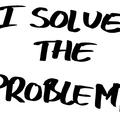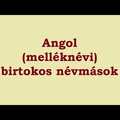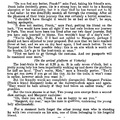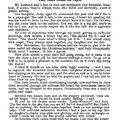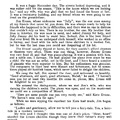- SIMPLE PRESENT (“there is/are; there’s / there’re”)
There is a cat in the room.
There are dogs in the yard.
There isn't a pen in my pocket.
There aren't any glasses on the table.
Is there a box in your car?
Are there any books on the shelf?
How much water is there in the bottle?
How many spoons are there in the drawer?
- PAST SIMPLE (“there was/were”)
There was a boy at the front door.
There were a lot of people at the corner.
There wasn’t a good programme on TV last evening.
There weren’t many coins in my purse.
Was there a dog in the park?
Were there many children at the party?
How much water was there in the jug?
Why were there red pills on the table?
- FUTURE SIMPLE (“there will be; there’ll be”)
There will be a chair at the table soon.
There won’t be anybody at school on Sunday.
Will there be a dog in the garden?
What will there be in the box?
- PRESENT PERFECT (“there has/have been; there’s been; there’ve been”)
There has been a box in front of my door – but now I can’t find it.
There have been three people in our office for an hour, and they still want to speak to you.
There hasn’t been anybody in the shop so far.
There haven’t been good performances in the show; I start to think it wasn’t a good idea to come.
You look disappointed. Has there been nothing to eat in the fridge?
Why are you eating raw meat? Have there been some stupid anti-vegan gastro-shows on TV again?
Why has there been a big dog in my garden for an hour?
You look angry and tired. How many people have there been in your class?
- PAST PERFECT (“there had been”)
There had been a small box on the table in the kitchen before I went out. Where is it now?
There hadn’t been anything in this copy-book before I started to write my thoughts in it.
Had there been anybody here before I opened the door?
How had there been everything at their places before I showed you where to put things?
- FUTURE PERFECT (“there will have been; there’ll have been”)
There will have been many mobile phones thrown out into trashcans by the end of this decade.
There won’t have been anybody living on Mars by the end of this century.
Will there have been a bus at the station for some minutes when we arrive there by taxi?
How long will there have been a cup of coffee on the table when you are finally able to drink it?
Continuous structures are not used nowadays (I mean, I have read several thousands of pages, but I haven’t ever found ones like the followings: )
Present continuous (there is/are being)
Past continuous (there was/were being)
Future continuous (there will be being)
Present perfect continuous (there have been being)
Past perfect continuous (there had been being)
Future perfect continuous (there will have been being)
*** *** ***
‘THERE + AUXILIARY VERB + BE’
CAN (“there can be”)
There can be a box on the table in the kitchen – don’t put it away, please!
There can’t be anything in the fridge. We must go shopping!
Can there be a solution for my problem? – Yes, there can. / No, there can’t.
What can there be under that carpet? Do you think it is a mouse?
COULD (past and conditional) (“there could be”)
There could be somebody at the door last night. He or she left a package on the doormat.
There could be a large picture on the opposite wall, and it would cover that ugly part on it.
There couldn’t be a big book in his bag – it wasn’t heavy at all.
There couldn’t be a man in the middle of the road, now, when peak time starts.
Could there be a friend of yours at the supermarket yesterday at 5 pm? I think I saw him. – Yes, there could. / No, there couldn’t.
Could there be a voice recorder on your desk during this lecture?
How much milk could be there in the fridge last night?
How many books could be there on the second level of the shelves?
MAY (“there may be”)
There may be a present under the Christmas tree – go and check!
There may not be enough time to finish this project, so we can’t stop now!
May there be a free taxi at the railway station?
How many people may there be in the building?
MIGHT (“there might be”)
There might be a great prize in the competition, so what about a try?
There might not be a solution to this problem, so I don’t want to waste any more time for that.
Might there be 2000 calories in the cake I have eaten? Oh, I think I have to go jogging tonight!
How might there be a way to get there on time?
WILL (“there will be”) (see in “There+be with tenses”)
WOULD (“there would be”)
There would be more time for the job if you asked for it.
There wouldn’t be a painting on your walls if I hadn’t helped you to choose them.
Would there be an empty seat for me to sit down? I’m a bit tired.
What would there be in your CV if you wanted to send it for a foreign firm?
SHOULD (“there should be”)
There should be some money in my purse but there isn’t any.
There shouldn’t be a car in front of our front door.
Should there be a leader for our group?
What should there be in a “welcome home” speech?
OUGHT TO (“there ought to be”)
There ought to be a clever pupil in every class.
There ought not to be a smoker among the sportsmen.
Ought there to be a mouse on your hat?
What ought there to be in my lunch-box? Some eggs and a slice of bread?
USED TO (“there used to be”)
There used to be a lake near our house. Now it is a park with trees.
There didn’t use to be so many cars on the roads.
Did there use to be many students in this summer camp?
How many children did there use to be in your neighbourhood when you were younger?
NEED TO (“there need to be”)
There needs to be a key to this door somewhere in the room.
There don’t need to be any tools for this machine to mend.
Does there need to be some petrol in a hybrid car?
What does there need to be in a modern home?
MUST (“there must be”)
There must be some available taxis at the airport and we can go in them into the town centre.
There mustn’t be anybody in the prohibited area.
Must there be a big backbag in the rear seat? It should be put under the seat.
What must there be in this cake according to the recipe?
HAVE TO (“there have to be; there has to be”)
There have to be some pens and pencils in your pencil-case.
There has to be a guard in front of the door.
There doesn’t have to be a map in the bag – I know the way to our hotel.
There don’t have to be any chairs at the table, because we won’t sit down.
Do there have to be some salt and pepper on the table? I can’t find a place for them.
Does there have to be a fan in the bathroom? There is a small window so you can air by opening it.
What kind of books do there have to be on a scientist’s bookshelf ?
What does there have to be in a hiker’s backbag?
BE ABLE TO (“there be able to be”) and HAVE BEEN ABLE TO (“there have been able to be”)
(I can hardly imagine a sentence with “be able to” and “there be” in one structure J )
MUST HAVE III. (“there must have been”), CAN’T HAVE III. (“there can’t have been”)
There must have been some eye-victims at the scene of the accident.
There can’t have been a mouse in the flat. The previous owners had a couple of cats.
COULD HAVE III (“there could have been”)
There could have been a terrible accident if they hadn’t warned you.
There couldn’t have been worse ideas than the ones the boss told us.
Could there have been flowers in the painting if I had told you to paint some?
What could there have been in the zoo if they had much more money for exotic animals?
MAY HAVE III. (“there may have been”)
There may have been a Santa Claus at the shopping centre but I didn’t see one.
There may not have been a screwdriver at home and that’s why he used a knife for mending the toaster.
May there have been a big red box in the garage? I think I saw something like that in the morning, but I was in a hurry.
What may there have been in that bag? It made a strange noise.
MIGHT HAVE III. (“there might have been”)
There might have been a nail on the road – that could make a hole in your tyre.
There might not have been nothing in the wardrobe that’s why she bought some new clothes.
Might there have been some peanuts in the cake? That could be an answer for his sickness after eating some.
WOULD HAVE III. (“there would have been”)
There would have been some great places to visit if we had had enough time to see them.
There wouldn’t have been any food for you for dinner if I hadn’t left you some after lunch.
Would there have been any questions you would have liked to ask after the lecture?
What would there have been in the letter if you had written it finally?
SHOULD HAVE III (“there should have been”)
There should have been some money in the little box but I couldn’t find a coin.
There shouldn’t have been any sugar in the cake you have made for the party.
Should there have been some fruit juice for the kids at the party?
How much water should there have been on the dog’s plate in the morning?
OUGHT TO HAVE III. (“there ought to have been”)
There ought to have been some paper in the printer! I couldn’t print my documents!
There ought not to have been problems at the meeting, but we couldn’t solve all our problems.
Ought there to have been a teacher in the classroom to look after the pupils during the free-lesson ?
What ought there to have been on the menu that they all would have eaten?
DIDN’T NEED TO (“there didn’t need to be”)
There didn’t need to be any cups at the party because everybody drank from their bottles.
NEEDN’T HAVE III (“there needn’t have been”)
There needn’t have been a lot of bottles of water in our car, because all the group members had brought themselves something to drink.
HAD TO (“there had to be”)
There had to be somebody to look after the kids during the party.
There didn’t have to be any cheese in the sandwiches – I put some cold cuts in them.
Did there have to be sugar in your tea? Sorry, I ran out of sugar some days ago.
What did there have to be in the speech that had to make the audience happy?


